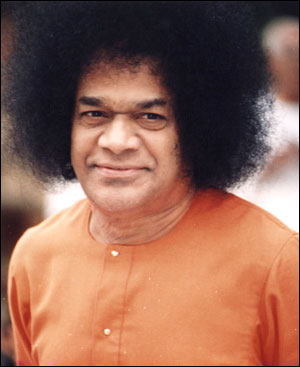 |
 |
 |
| Volume
3 - Issue 2, FEB 2005 |
Discrimination and detachment are the first and the second steps that man has to take in order to reach the Eternal Atmic Truth. The mind can be steadied only by means of the mastery of desire, the quality of unwavering Detachment. Once the mind is still, peace reigns and bliss prevails. Detachment or the giving up of the tendency to pursue what attracts the mind, is often misconstrued as asceticism which renounces social and family life and escapes into the loneliness of the forests. But, it involves, more than anything else, awareness of the basic blemish in all material things. Without this inquiry and this discovery, all claims for detachment or renunciation are false. No one can have real detachment in their absence. The sense of dislike that results from the recognition of the temporariness and triviality of pleasure is best called `practical detachment'. The giving up of external struggle is not enough, nor is it a great achievement. The real struggle is internal - the withdrawal of the extrovert senses into the mind and making them ineffective through the exercise of the intellect or discrimination. Investigate each material object that entices the senses by beauty, fragrance, sweetness and softness. Realise that these are all momentary, depending on your mental condition, physical health and emotional balance. Man is enamoured of such fleeting phenomena; he accepts them as valid and valuable. He is entangled in these unrealities and he strays far away from the path of liberation. This is really not man's goal.
The classical poet-philosopher Bhartrhari asks, "How can medicine, resorted to for the sake of curing an illness, be deemed a luxury, a desirable pleasure?" Hunger is a `disease'. Food is the medicine that cures the disease. That is the plain fact but no one recognises it and behaves accordingly! They have made it a costly ritual, a futile feast, a fertile source of further diseases! For, they cater to the whims and fancies of the tongue and behave like slaves of the senses. The King was hunting in the depths of a forest from dawn until early afternoon. He was afflicted by intense thirst. At last, he found a hermitage where he took refuge. The inmates gave him cool clear water to drink. That was the medicine which he needed most. It made him fresh and fine. If the drink intoxicates him, robs him of reason and degrades his personality, it is the cause of many other diseases. Discrimination will reveal the dangers lurking in becoming a bond slave of the senses. The special instrument that God has allotted man, namely, Buddhi or the Intellect, has to be used by man to become master of these down-dragging senses. The Intellect has to be used to judge and decide the means for the upliftment of the human to the Divine. It has to help man to realise God and nothing less. Nevertheless, it is now misused in finding others' faults and belittling others. It is like using a mirror, not to improve one's appearance, but to ridicule the appearance of others! The Antahkarana has four instruments that prompt man. Of these, Buddhi is two-faced; it draws light from the Atma to which it is closest; it illumines with that light, the mind and the senses. It regulates the passions and emotions, the impulses and instinctive reactions. Some perverse minds confront with questions, like, "Is not ensuring the safety and happiness of our wives and children our duty? How can you declare that it is not desirable?” Yes. But remember the prime purpose of the education you earn in this life is to concentrate on your Atmic Truth. Do not be diverted from this fundamental duty. Other activities must smoothen and straighten this Path. They must be contributory Sadhanas for this basic purpose of man. |
| Optimized for Netscape and Firefox. Best viewed in Internet Explorer - 1024 x 768 resolution. |
